

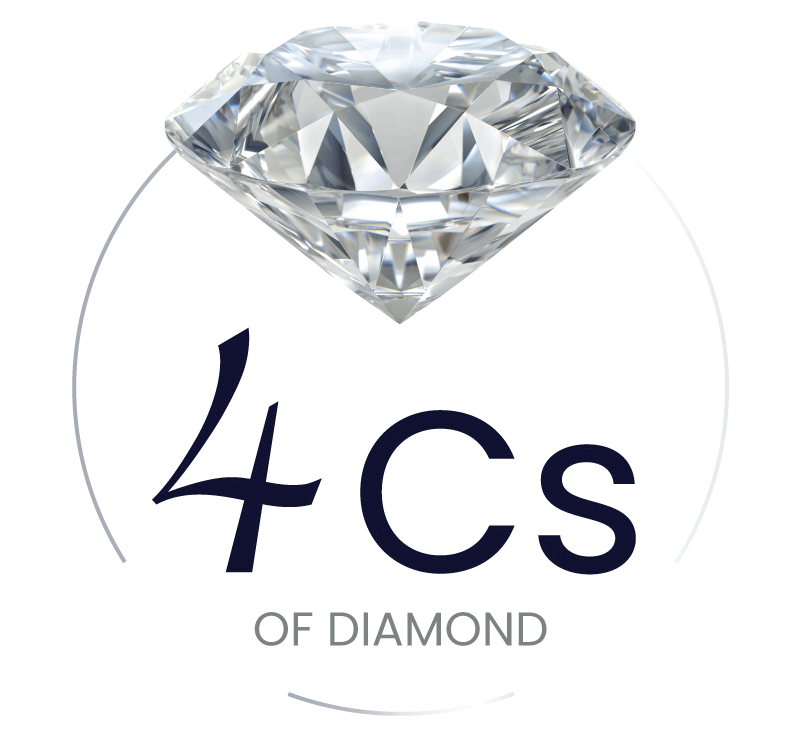
4Cs of Diamond Quality
GIA Certified Loose Diamonds
Each rough diamond at our lab undergoes a strenuous selection and sorting process, followed by polishing, during which the true brilliance of the diamond becomes visible as it qualifies the International Diamond Grading System of GIA Certified Loose Diamonds.
A magnificent diamond is one that is graded as per the 4Cs – Color, Carat, Cut, Clarity by a leading gemmological institute. Moreover, how much would a particular diamond be priced is influenced by the 4Cs and its grading. Here, is a basic guide to the 4Cs that will aid you in developing the knowledge about diamonds and having you choose the perfect one for yourself.
GIA Certified Loose Diamonds
COLOR GRADE
A Colorless Affair
The Color grade for diamonds spans from Grade D (white/colorless) till Z that is the less in demand and significantly tinted. The diamonds widely purchased or incorporated in jewelry in general, range from the H - Grade to the K - Grade.
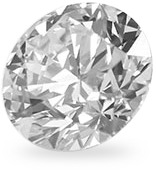
D COLOR
The Color grade for diamonds spans from Grade D (white/colorless) till Z that is the less in demand and significantly tinted. The diamonds widely purchased or incorporated in jewelry in general, range from the H - Grade to the K - Grade.
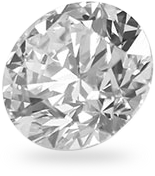
E COLOR
This grade is closer to D hence, it is can only be distinguished by an experienced gemmologist with the aid of master stone. As for the price, it is slightly cheaper as compared to D color graded diamonds.
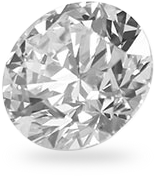
F COLOR
In comparison to D & E; F grades are the lowest and are least expensive as compared to the D & E color grade diamonds.
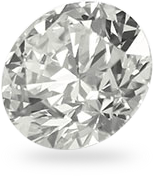
G COLOR
Diamonds of this color grade offer excellent value for money as they are nearly colourless unless compared to E& F
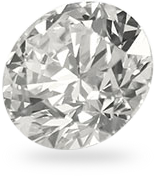
H COLOR
These are considered to be the border between colourless (white) and tinted diamonds with great value for money, and without any visible yellow or brown tint unless compared side by side with a whiter diamond.
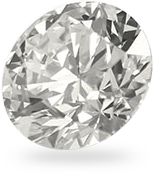
I COLOR
Diamonds with I Color grade appear to be slightly tinted but it offers great value for money.
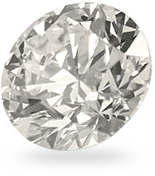
J COLOR
J coloured diamonds are very or slightly yellow tinted diamonds, and it is difficult to see the slight yellowish tint appearing in them.
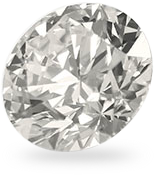
K COLOR
K color graded diamonds appear to be slightly yellowish and tinted, however, if these diamonds are embedded in Yellow or Rose Gold jewelry, they appear to be less tinted.
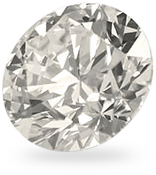
L COLOR
Diamonds of these color grades are more tinted as compared to J & K and Yellow-toned or Rose Gold jewelry is an ideal choice that goes well these.
Here, is a diamond scale showing colorless diamonds to slightly tinted for ease of comprehension.
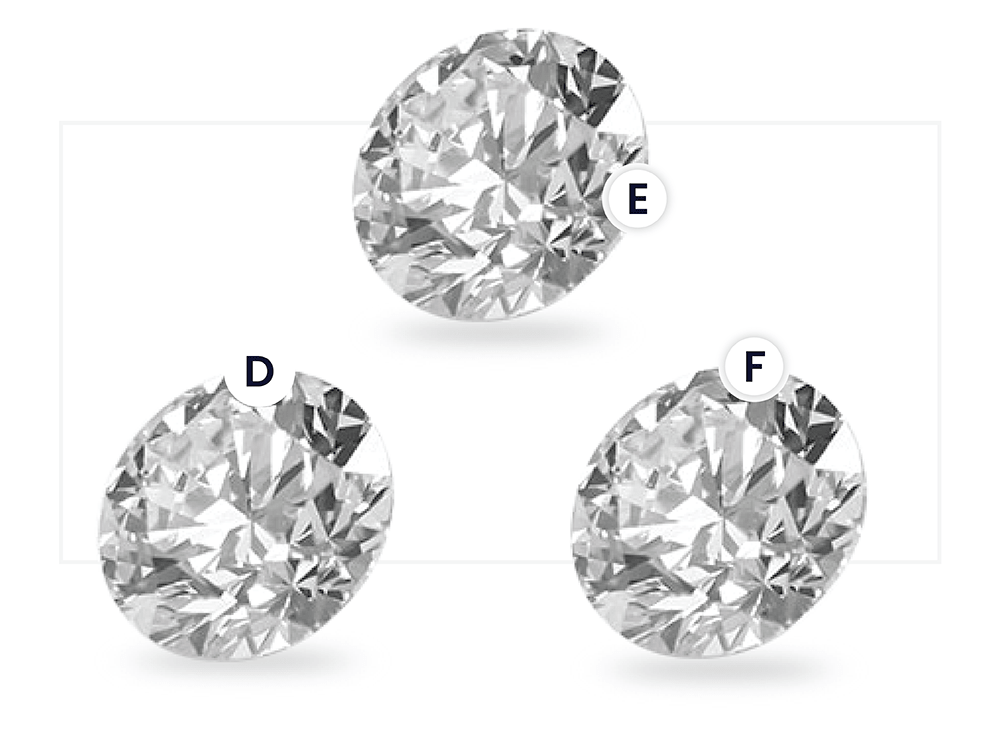
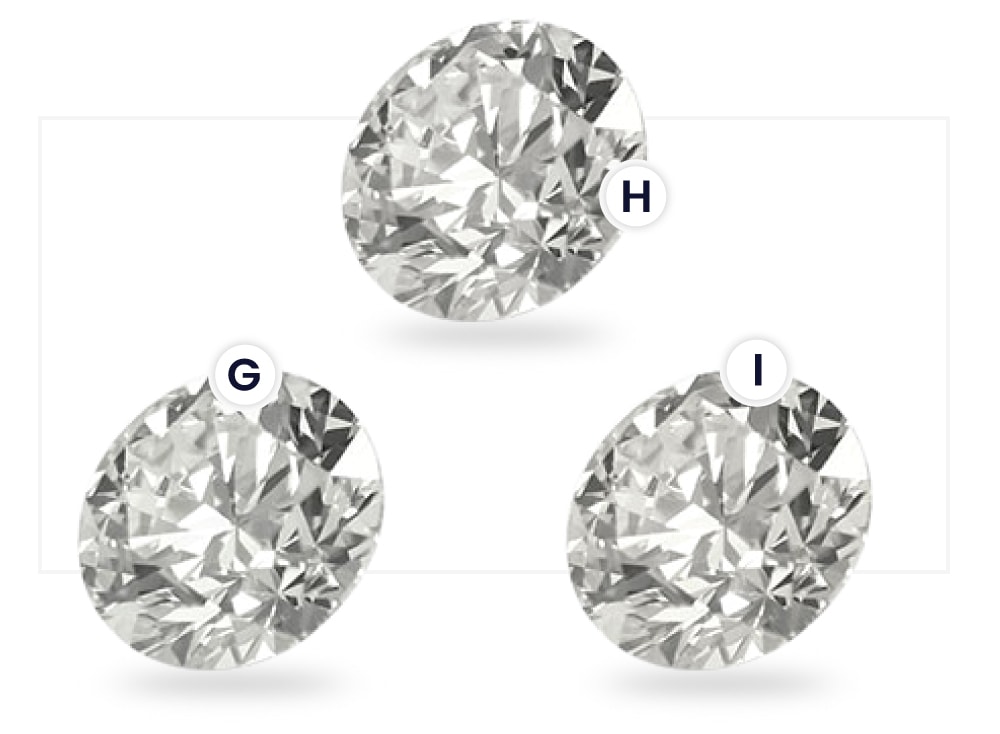
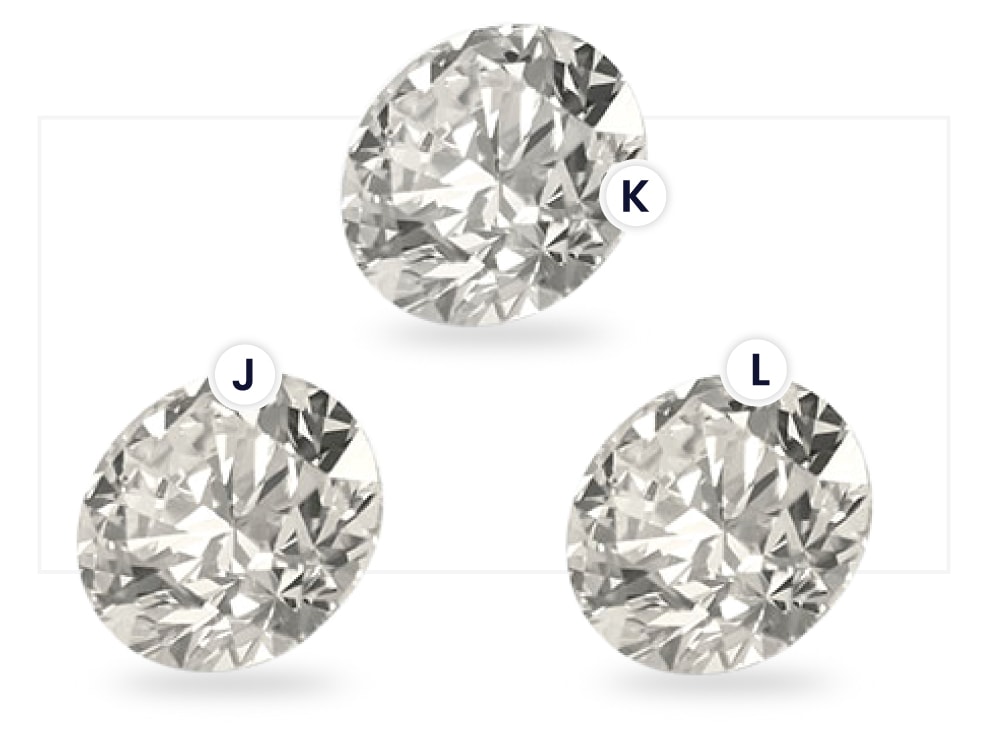
GIA Certified Loose Diamonds
CLARITY GRADE
Seeking Perfection with Clarity
During the formation of diamonds within the Earth under extreme pressures, and exposure to heat; coal deposits and impurities (referred to as inclusions) in the crystal-like structures can get trapped inside that influence the clarity of the rough diamonds. The rough diamonds that are naturally clear and inclusion-free (without any flaws) are the most expensive. The type and number of inclusions and where it is, or are located inside the rough stone; greatly influences the planning, marking and cutting processes and can be taxing as well.
FL
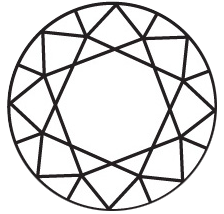
FLAWLESS
IF
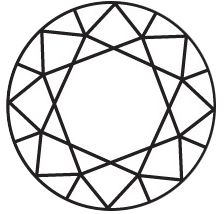
INTERNALLY FLAWLESS
VVS1, VVS2
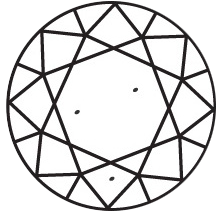
VERY VERY SLIGHTLY INCLUDED
VS1, VS2
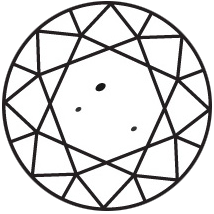
VERY SLIGHTLY INCLUDED
SI1
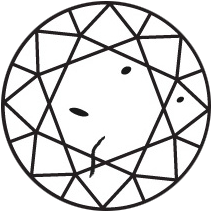
SI2, SI3
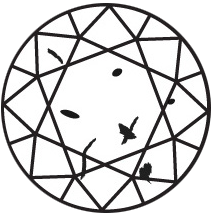
SLIGHTLY INCLUDED
I1, I2
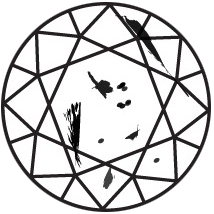
I3
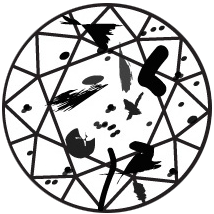
INCLUDED
The grading scale starts from Flawless / Internally Flawless (FL/IF), Very Very Slightly Included (VVS1/VVS2), Very Slightly Included (VS1/VS2), Slightly Included (SI1/SI2) to Included (I1, I2 and I3).

FL / IF
FLAWLESS / INTERNALLY FLAWLESS:
These are the rarest with 100% clarity and entirely flawless without any inclusions or imperfections.

VVS1
VERY VERY SLIGHTLY INCLUDED 1:
These have one minor inclusion not visible to the naked eye and only under 20x magnification and beyond.

VVS2
VERY VERY SLIGHTLY INCLUDED 2:
These have two minor inclusions not visible to the naked eye and only under 20x magnification and beyond.

VS1
VERY SLIGHTLY INCLUDED 1:
These have more than one or several inclusions that are still not visible to the naked eye and only under 10x magnification and beyond.

VS2
VERY SLIGHTLY INCLUDED 2:
These again have inclusions in groups out of which some can be minutely spotted by the naked eye, however all inclusions are visible at 10x magnification and beyond.

SI1
SLIGHTLY INCLUDED 1:
These have minor inclusions that are visible to the naked eye as compared to VSI1 & VSI2, but have a cleaner overall appearance.

SI2
SLIGHTLY INCLUDED 2:
These diamonds have visible blemishes and imperfections visible to the human eye.

I1, I2
INCLUDED 1 / INCLUDED 2:
These have several inclusions that are visible to the naked eye hence, they are not recommended to be place in jewelry either, and they are the cheapest in price as compared to other clarity grades.

I3
INCLUDED 3:
These have several inclusions that are visible to the naked eye hence, they are not recommended to be place in jewelry either, and they are the cheapest in price as compared to other clarity grades.
GIA Certified Loose Diamonds
CUT GRADE
A Cut Above the Rest
After Clarity grading comes the Cut of a diamond. It is considered as a vital component as it affects and influences the sparkle, brilliance and fire and light symmetry of a diamond. It is achieved with extremely meticulous planning, cutting and polishing. If the entire process is mastered; it results in an extraordinary diamond.
The round brilliant diamond has the following components.
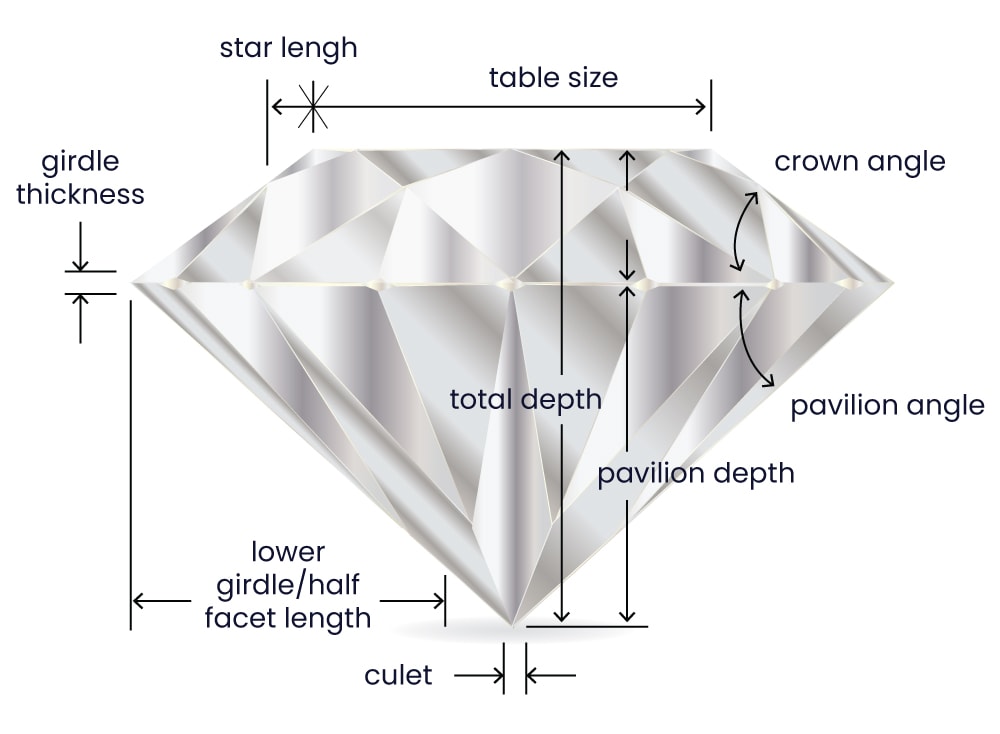
The sparkle, brilliance, and fire in a diamond comes to life if it is of an Ideal Cut.
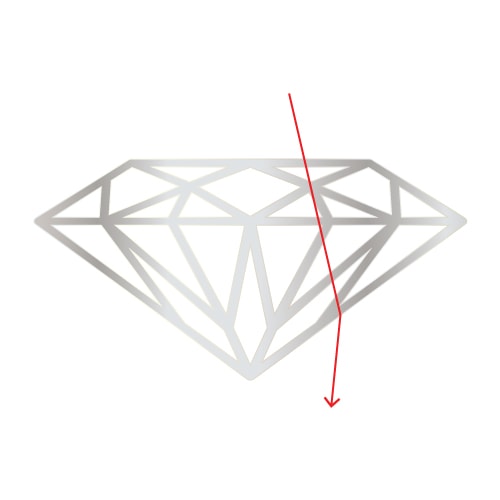
SHALLOW
When a diamond is cut too shallow, light leaks out the bottom, brilliance is lost and the diamond appears waterly, glassy and dark.
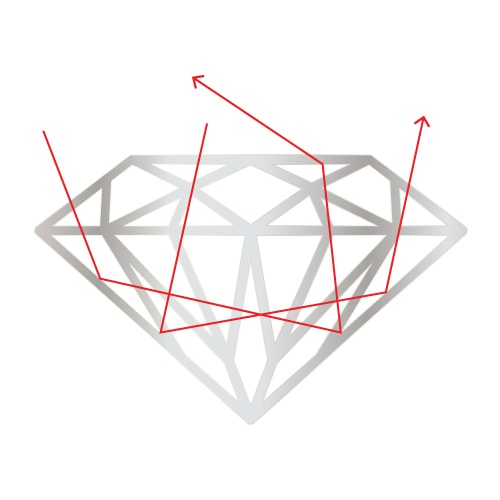
IDEAL
Then light entering the diamond onternally from facet to facet and is reflected back through the top only, creating maximum brilliance.
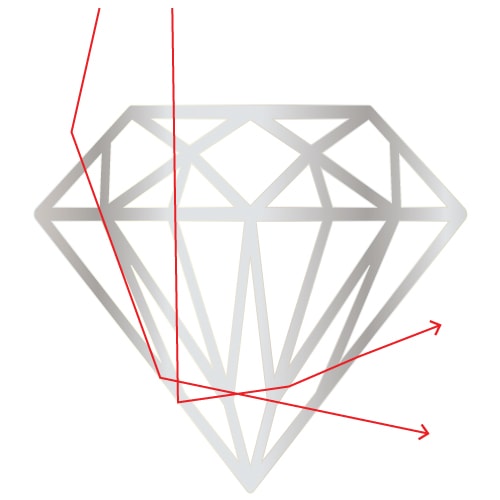
DEEP
When a diamond is cut too deep, light leaks out of the bottom, brilliance is lost and the center of the diamond will appear to be dark.
GIA Certified Loose Diamonds
CARAT GRADE
Extraordinary Things Come in Small Sizes
Carat refers to the diamond's weight, denoting a measuring scale where each 1 carat = 0.2 grams (0.50 carat = 0.1 gram and 5 carats = 1 gram). While carat weight may indicate a diamond’s size, the shape and cut of a stone also play a large part in determining how large or small the stone appears. The longer shape; such as, the Marquise cut may appear larger than a round brilliant even if both the stones have the same weight. Commonly, the diamond sizes that are highly sought after (e.g. 0.50ct, 0.75ct, 1.0ct) and prices can vary dramatically depending on the carat weight. A 0.90ct diamond can be 10-20% better value than a 1.0ct diamond of the same quality but can appear almost identical in size but very different in price.



